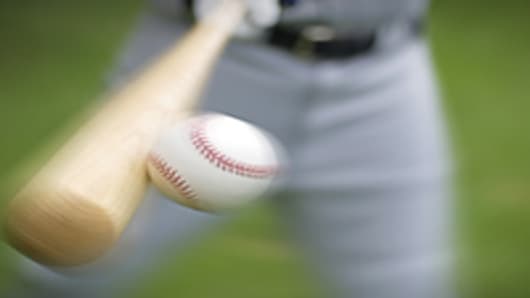It makes sense that the same techniques work on both: There are important parallels between highly productive business leaders and their high-performing athlete counterparts. Business people are prone to many of the same unhelpful behaviors and mindsets as underperforming athletes, which prevent both groups from being at the top of their game.
But business leaders can train their brains in mental toughness. Here are five ways executives can prevent unproductive habits from getting in the way of their personal best.
Focus on the swing, not the home run. By focusing on the target, rather than the process needed to reach it, you may never get there. On a daily basis, rally your energy and courage to tackle those daily goals that have the greatest influence on your performance and, therefore, your success. These are process goals. If your aim is to double your client load in one year, then figure out three specific tasks, or process goals, you need to complete each day that will help you reach that ultimate target. If you are relentless and consistent about completing your three daily process goals, you will succeed.
Keep your eye on the ball. Many driven workers believe that they can answer emails, talk to a client, and check their calendar all at once. But recent research out of Stanford University found that multi-taskers are not only less productive than their single-minded counterparts, they may also suffer from weaker self-control ability. Control your tendency to become distracted. Keep your focus on one task at a time. Turn off your cell phone and shut down your email while you're completing the three process tasks you identified above. The American Psychological Association cites a study showing that multitasking leads to as much as a 40 percent drop in productivity.
Follow your code of conduct. Just as pro athletes have a specific set of rules to follow during and after the game, leaders need to establish their own "not to-do" list. This might include counterproductive tasks such as taking clients after 3:30 p.m., or responding to company emails during family time, or not saying yes right away to a new project, but giving your answer the next day, after you've slept on it. Schedule your calendar rather than letting your calendar schedule you.
Rest and rejuvenate between games. Lack of sleep causes fatigue, a productivity killer. Nearly four out of 10 workers are regularly fatigued, according to a recent study in the Journal of Occupational and Environmental Medicine. The rate of lost productivity for workers with fatigue was 66 percent, compared with 26 percent for workers without fatigue. Total lost productive time averaged 5.6 hours per week for workers with fatigue, compared to 3.3 hours for their counterparts without fatigue.
Get 7-9 hours of sleep per night—and make this a priority.
Don't push through the pain. In sports, this is what causes injury. In the workplace, it's known as "extreme working," and it results in lower performance. New research found that 69 percent of extreme workers — super high achievers who regularly work 60-80 hours a week and are in the top 6 percent of earners — admit that their extreme working habits undermine their health. Most of these workers can't sustain this level of performance, and end up burning out, just like promising athletes who have to sit on the bench all season or retire early because of injuries.
Jason Selk, Ed.D., is the bestselling author of "10-Minute Toughness" (McGraw-Hill, 2008) and "Executive Toughness" (McGraw-Hill, 2011).
Email us at SmallBiz@cnbc.com
Follow us on Twitter @SmallBizCNBC


